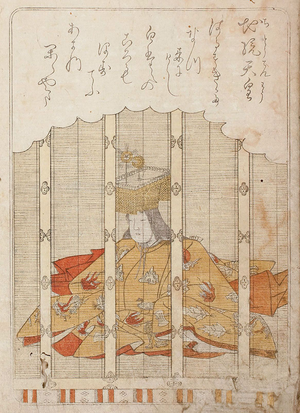Calendar year
| Millennium: | 1st millennium |
|---|---|
| Centuries: | |
| Decades: | |
| Years: |
| 703 by topic |
|---|
| Leaders |
| Categories |
| Gregorian calendar | 703 DCCIII |
| Ab urbe condita | 1456 |
| Armenian calendar | 152 ԹՎ ՃԾԲ |
| Assyrian calendar | 5453 |
| Balinese saka calendar | 624–625 |
| Bengali calendar | 110 |
| Berber calendar | 1653 |
| Buddhist calendar | 1247 |
| Burmese calendar | 65 |
| Byzantine calendar | 6211–6212 |
| Chinese calendar | 壬寅年 (Water Tiger) 3400 or 3193 — to — 癸卯年 (Water Rabbit) 3401 or 3194 |
| Coptic calendar | 419–420 |
| Discordian calendar | 1869 |
| Ethiopian calendar | 695–696 |
| Hebrew calendar | 4463–4464 |
| Hindu calendars | |
| - Vikram Samvat | 759–760 |
| - Shaka Samvat | 624–625 |
| - Kali Yuga | 3803–3804 |
| Holocene calendar | 10703 |
| Iranian calendar | 81–82 |
| Islamic calendar | 83–84 |
| Japanese calendar | Taihō 3 (大宝3年) |
| Javanese calendar | 595–596 |
| Julian calendar | 703 DCCIII |
| Korean calendar | 3036 |
| Minguo calendar | 1209 before ROC 民前1209年 |
| Nanakshahi calendar | −765 |
| Seleucid era | 1014/1015 AG |
| Thai solar calendar | 1245–1246 |
| Tibetan calendar | 阳水虎年 (male Water-Tiger) 829 or 448 or −324 — to — 阴水兔年 (female Water-Rabbit) 830 or 449 or −323 |

Year 703 (DCCIII) was a common year starting on Monday (link will display the full calendar) of the Julian calendar, the 703rd year of the Common Era (CE) and Anno Domini (AD) designations, the 703rd year of the 1st millennium, the 3rd year of the 8th century, and the 4th year of the 700s decade. The denomination 703 for this year has been used since the early medieval period, when the Anno Domini calendar era became the prevalent method in Europe for naming years.
Events
By place
Byzantine Empire
- Arab–Byzantine War: The Umayyad army under Abdallah ibn Abd al-Malik captures Mopsuestia in Cilicia from the Byzantines, and refortifies it, making it the first major Muslim stronghold in the area that will later become the Thughur.
- Musa ibn Nusayr, governor of Ifriqiya (western Libya), builds a Muslim fleet to harass the Byzantine navy and conquer the islands of Ibiza, Majorca, and Menorca (approximate date).
Europe
- Faroald II, duke of Spoleto, attacks the Exarchate of Ravenna in Italy, after the death of his father Thrasimund I. King Aripert II of the Lombards, desiring good relations with the Byzantine Empire and papacy, refuses to assist him.
Britain
- High King Loingsech mac Óengusso and his forces are routed during an invasion of Connacht (Ireland). He is killed by the men of King Cellach mac Rogallaig (approximate date).
By topic
Religion
- Wilfrid, Anglo-Saxon bishop, travels to Rome again, and is supported in his struggle to retain his see of York by the pope. On his way Wilfrid stops in Frisia (modern Netherlands), to visit Willibrord.
- Elias I becomes Catholicos of All Armenians.
Births
- An Lushan, Chinese rebel leader (approximate date)
- Shi Siming, general of the Tang Dynasty (d. 761)
Deaths
- January 13 – Jitō, empress of Japan (b. 645)
- March 20 – Wulfram, archbishop of Sens
- Ergica, king of the Visigoths (or 701)
- Ermenilda of Ely, Anglo-Saxon abbess (approximate date)
- Loingsech mac Óengusso, high king of Ireland
- Thrasimund I, duke (dux) of Spoleto
References
- Treadgold, Warren T. (1997), A History of the Byzantine State and Society, Stanford, CA: Stanford University Press, pp. 337–339, ISBN 0-8047-2630-2
- ^ Venning, Timothy, ed. (2006). A Chronology of the Byzantine Empire. Palgrave Macmillan. p. 189. ISBN 1-4039-1774-4.
- Levison England and the Continent pp. 50–51